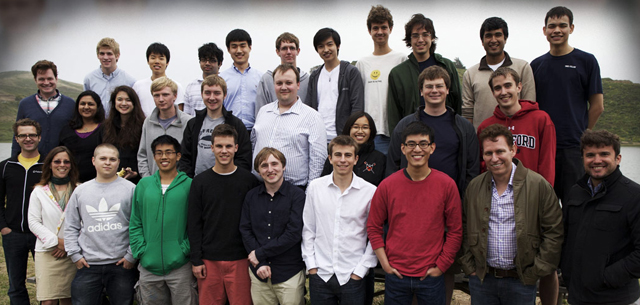Want smarter insights in your inbox? Sign up for our weekly newsletters to get only what matters to enterprise AI, data, and security leaders. Subscribe Now

Everybody knows that if you’re smart and ambitious, you attend college. Why? Tradition. But if we’re ambitious about creating a better twenty-first century, should we follow traditions from the nineteenth?
In the past hundred years, technology entrepreneurs have given us cars, jets, vaccines, cell phones and computers. The college industry, meanwhile, has made remarkable innovations in raising prices and offering novel forms of debt.
College tuition has gone up 500 percent in the last 30 years, helping all of us speed towards bankruptcy at an even faster rate than our health care system. But while medicine has made at least some quality improvements since the early 1980s, higher education is all price and no product.
If anything, actual learning at college campuses is in decline. Today’s students report spending 75 percent of their time socializing and sleeping, leaving a scant six hours per day to attend class, study and work, according to a recent study of more than 2,300 undergrads. It’s not clear why kids should have to pay to learn how to sleep and socialize. Most people get pretty good at doing both for free.
After two years in school, the same study found that 45 percent of college students showed no significant gains in learning, and after four years, 36 percent showed almost no change in skills. More students than ever are taking six years to graduate, but no matter how many years they haunt the campus, they’re not learning anything new. Universities take in more money than ever before while failing to deliver results.
Even at schools that go out of their way to attract top talent, there’s no guarantee that a student will actually be mentored by someone with a great mind. She’s much more likely to sit in a classroom led by a low-paid teaching assistant while the famous professor plays academic politics to win government grants.
Employers make the problem worse by requiring bachelor’s degrees when hiring, but this problem can be solved with the stroke of a pen. A degree means a job candidate went to college. But what happens in college stays in college. When a company needs specific skills, knowledge, or talents, it’s better off asking for those directly. Requiring a BA guarantees nothing, and may keep out some of the most creative minds. If we replace our degree fixation with an emphasis on skills, colleges can stop sleepwalking through their stagnant four-year (and five-year and six-year) rituals and start focusing on dynamic ways to transmit skills and knowledge for actual careers.
Some employers will be slow to change, but it’s already true that you don’t need a degree to start a company, and you don’t need a degree to create a new technology that will change the world for the better. Just ask Bill Gates, Steve Jobs, Mark Zuckerberg or David Karp.
That’s why we started the 20 Under 20 Thiel Fellowship. The Thiel Fellows aren’t going to college. Instead they’re designing their own projects, getting guidance from our Silicon Valley mentoring network, and learning for themselves how to do research and start companies. And instead of charging six figures, we’re giving each fellow $100,000 to rescue them from creativity-killing debt.
We’re not fixated on academic achievement. Some of our fellows ace high school, and some never fit well with traditional schooling at all. We probe how they think, what motivates them, and whether they’re truly driven to change the world. These qualities are much more powerful than a stellar GPA.
Encouraging people to skip college is controversial, but it’s a controversy that’s long overdue, and our nation’s future is at stake. Employers need to get more creative about hiring new talent instead of using meaningless proxies like BAs. We challenge students everywhere to think carefully about the costs, benefits, and risks of all their options, including college. And we challenge teens who want to change the world to apply to join us as Thiel Fellows. The future can’t wait forever.
James O’Neill runs the Thiel Foundation, which promotes science and liberty across the globe and opposes violence in all its forms. He co-founded and oversees the 20 Under 20 Thiel Fellowship, which is accepting applications through Dec 31. He also serves as a managing director of Clarium. Previously, he was the principal associate deputy secretary of health and human services. He lives in Mill Valley with his wife, Lien, and their three children.

